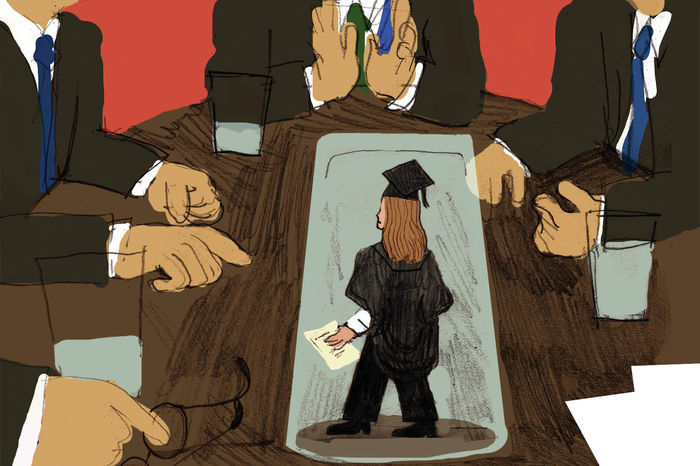Get the medicine drug! Exploring the resurgence of House MD
Ruby Randall reflects on our connection with Hugh Laurie and House MD

In the still of the night, gnats freeze immobile in the air, leaves cease their rustling, the wind’s passage stopped up… the moon whispers a rumour, but a murmur: “Hugh Laurie might be coming back to Cambridge this year.” All that was still goes back to its business, the night returns to its usual rhythm, appears as before, but is yet changed.
Of all our famous alumni, there are few who so embody what the idealistic aspire towards than those of the Cambridge Brat Pack. The potential of Laurie returning to his “native soil” has so many fervour-inducing implications because, alongside the rest of the 80s Footlight success stories (Stephen Fry, Emma Thompson, etc), he contributes so much to ‘The Cambridge Romance’.
But despite this more direct link to Cambridge, the first thing to enter most students’ minds hearing this new seems to be less Laurie’s Footlight days, but more his role in the hit series House MD – a show loosely based on Sherlock Holmes in which Gregory House, a misanthropic but impossibly intellectually gifted doctor solves medical mysteries with the help of his team of experts and his best friend, Dr James Wilson. There’s a lot of medical malpractice and a lot of boob jokes, but it’s not hard to get swept up in the wild ride Laurie (with a scarily good American accent) takes us on.
“We’ve got third-degree House-fever… and there’s no known cure”
House MD came to Netflix and Amazon Prime recently, provoking a flood of related memes on X and Reddit, as well as reposts, edits, and clips on Tiktok and Instagram. According to Google Search Analytics, online interest in the UK from April 2025 was equivalent to that of May 2012 when the show’s final episode was aired. Parodies like “patient needs mouse bites to live” have been circling since 2023, and of course a series that was hailed ‘The Most Watched TV Show in the World’ in 2008, that ran for 8 years, is bound to have some semblance of lasting popularity.
Maybe I’m just under House Arrest (ha), but it seems like everyone here has just got into the show. With the power of statistics on my side, over the whole UK, for the past 5 years Cambridge has been the 6th city most obsessed with our favourite medical malpractitioner. Of course, that’s to be expected from a city with a relatively large student population, but those with larger portions of students like Leeds or Manchester didn’t even make the list. One answer can be drawn from this: we’ve got third-degree House-fever… and there’s no known cure.
“Isn’t the thought of being a ‘troubled genius’ something a lot of Cambridge students find attractive?”
Recent House MD memes are likely to have been most people’s recent gateway to the show, and the traumatising picture of Laurie clamping his lips on a potentially used latex glove was certainly mine. Indeed, the motivation to continue watching could be linked to a desire to get more of the circulating jokes - I didn’t fully delight in moments like “Are you being intentionally dense?” or “You can’t stop our love!” until I’d soldiered past Season 1. David Shore’s episodic format also helps keep up the pace, providing viewers with a basic mystery formula that gets shaken up every now-and-then has worked for countless shows.
However, it’s called House MD for the same reason the BBC Sherlock series doesn’t follow Arthur Conan Doyle’s original titles like ‘A Study in Scarlet’. The main attraction isn’t the medical mysteries- it’s the detective. Not only House himself, but it is I think the series’ attention to all its characters and social minushy that keep its audience engaged, especially considering the ‘mystery’ element is inevitably diluted when a show is put on a streaming platform rather than weekly episodes.
You could put Princeton Plainsboro into the mould of a faculty building with relative ease, as could you imagine Gregory House as a particularly iffy supervisor. Though following the source material’s rule of a Watson/Wilson sidekick for Sherlock/House is definitely a core part of the show, the addition of three subordinate prodigies is unique to House, and part of its particular appeal. Like Cambridge students, House’s underlings were pooled to learn from the very best based on confusing and unrelated qualities. Three smart kids in a room is basically the composite of a typical college class- Foreman, Cameron, and Chase are even given their own weekly assignments, which are only slightly more stressful than ours.
How many times have you suspected that the ‘something special’ that admissions saw in you or a peer wasn’t just that you were pretty, or rich, or from an underrepresented group? And isn’t the thought of being a “troubled genius” something a lot of Cambridge students find attractive?
Regardless of whether you do medicine or not, the show’s construction of House as a multitalented, misunderstood savant in a high-pressure environment is, I think, tapping into something universal within Cam culture as much as the Laurie myth itself does. If you love House, or love to hate him, maybe Hugh Laurie’s return to Cambridge might mean something new with all the revived popularity of what was possibly his most famous role.
 News / Cambridge academics sign open letter criticising research funding changes22 February 2026
News / Cambridge academics sign open letter criticising research funding changes22 February 2026 News / University Council rescinds University Centre membership20 February 2026
News / University Council rescinds University Centre membership20 February 2026 News / Supporters protest potential vet school closure22 February 2026
News / Supporters protest potential vet school closure22 February 2026 News / Hundreds of Cambridge academics demand vote on fate of vet course20 February 2026
News / Hundreds of Cambridge academics demand vote on fate of vet course20 February 2026 Comment / A tongue-in-cheek petition for gowned exams at Cambridge 21 February 2026
Comment / A tongue-in-cheek petition for gowned exams at Cambridge 21 February 2026








